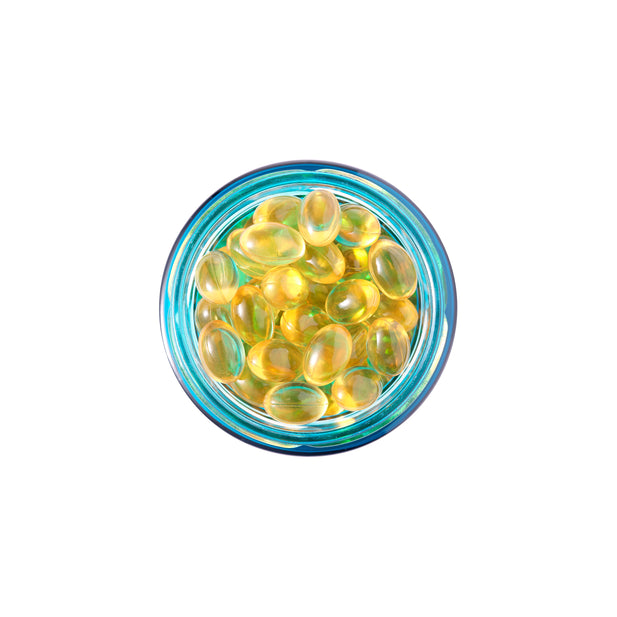Omega-3: our bodies need them
Normally, we obtain essential marine omega-3s from our diet.
Fish and fishoil
Omega-3 EPA and DHA fats are the main reason that fish is considered to be a healthy food. So traditionally, by eating wild-caught fatty fish and seafood, we have kept our marine omega-3 intake in check. But modern diets have changed, and not everybody eats enough omega-3-rich foods. Modern foods are also different, with a lot of fish in the market coming from farms, meaning they have very different nutritional profiles than omega-rich, wild-caught fish.
Many people prefer to take supplements with omega-3s in the form of fish- or krill-oil capsules to fulfil their omega-3 EPA and DHA needs. Omega-3 supplements are also very popular among athletes.
But, here’s another catch: high levels of environmental toxins and heavy metals in wild fish and fish oil are a matter of increasing concern. Due to pollution and plastics in our oceans, fatty fish can have alarmingly high amounts of mercury and other heavy metals, PCB, dioxins, phthalates and PFAS. Meanwhile, the threat of overfishing in our oceans is becoming more serious.
Walnuts, chia seeds and other land-based plants
For those who are vegan, vegetarian or allergic to fish, getting the omegas they need from their everyday diet can become an even harder task than otherwise. They often resort to land-based omega-3 sources, which nevertheless only contain alpha-linolenic acid (ALA), a shorter omega-3 form. Our capacity to obtain EPA and DHA from conversion of ALA is limited, which is why it is recommended that we also obtain EPA and DHA from our diets.
The only plant-based source of marine omega-3: algae.
Microalgae are the only plant-based source of omega-3 EPA and DHA. The marine omega-3 oils EPA and DHA found in algae are exactly the same as those found in fatty fish — because the fish get their omega-3s from the algae in the first place. It is much smarter to go straight to the source and take omega-3 oil directly from algae instead.










